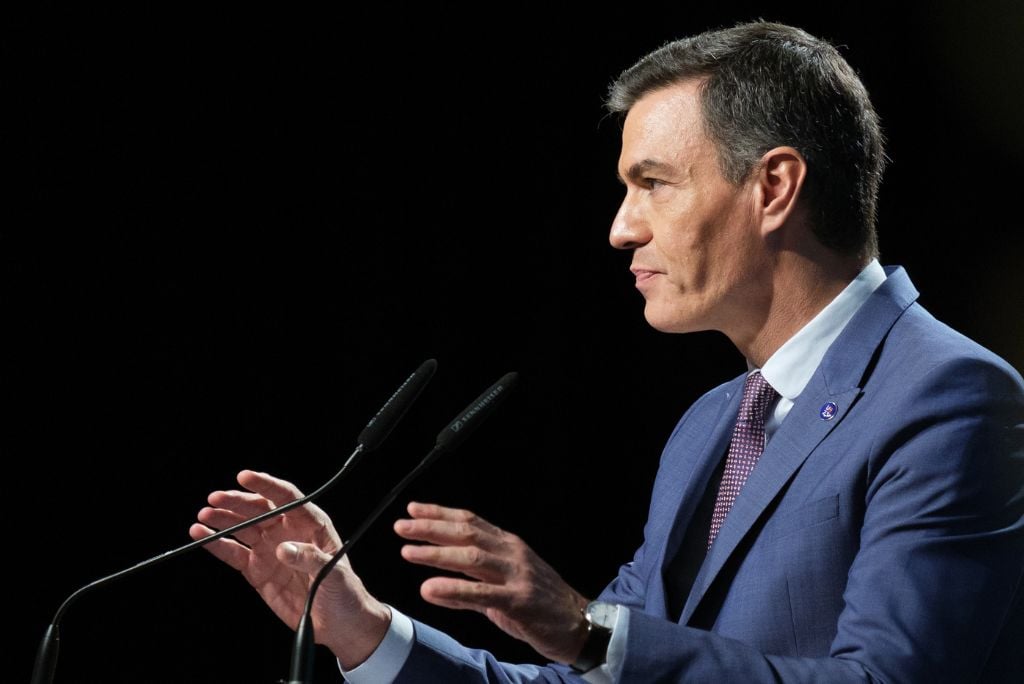We support our Publishers and Content Creators. You can view this story on their website by CLICKING HERE.

The Spanish left has united to control the fourth estate. If they achieve their goal, the media will be censored, and it will be the end of freedom of expression, particularly of the press.
As the saying goes, «The road to hell is paved with good intentions.» In this way, censorship in Spain is promoted as a protective measure. A state-authorized narrative is imposed from power.
To achieve this, they promote it as a measure of “transparency.” It even aims to create a media registry under the National Commission of Markets and Competition. The government claims that this way, information about media financing, advertising investment, and ownership would be transparent.
The Executive announced that it would allocate 100 million euros to combat what it calls the «rise of the far-right.» It also accuses the «interference of foreign powers,» all of which it deems «enemies of democracy.»
According to reports from Moncloa (the executive government palace), this measure would serve to distinguish between what it calls legitimate media and pseudo-media. This term arose after allegations regarding irregular activities involving Pedro Sánchez’s wife.
Brazil is already censoring foreign media
Among the most forceful voices against these actions was the president of Argentina, Javier Milei. It even caused diplomatic tension between the two countries. Could this measure be extended? The question is valid in light of the reality in Brazil, where some foreign media, particularly from Argentina, are banned. La Derecha Diario was censored.
That was just the first step. Now in Brazil, there is no access to platform X, formerly Twitter, after a Supreme Court judge (locally referred to as a minister of the Federal Supreme Court) demanded Elon Musk censor the accounts of right-wing/Bolsonarist politicians. After the South African billionaire refused, the next step was the shutdown of operations in Brazil.
Spanish media expose that the government does not practice what it preaches
However, the Spanish portal El Confidencial points out that the government demands transparency from the media but does not lead by example.
“Where does institutional advertising go in Spain? Payments to media that the government conceals,” reads the headline of an article where the outlet investigates public funds transparency.
According to El Confidencial, this information should have been public for years. However, the outlet only obtained it after successive requests under transparency laws. They had to submit a request in 2022. They detail that the Presidency initially agreed to deliver the detailed information on the distribution, but they reproach that it merely shared a link to the same media plans that are published annually on its website.
The government accuses the PP of funding conservative media to undermine the Executive
One of the main reasons behind this measure is the Executive’s accusation that regions governed by the Partido Popular (PP) are funding media outlets with conservative editorial lines to undermine the Executive.
According to the official text, «it is necessary to set limits on the funding that public administrations can allocate to the media so that there are no media outlets essentially driven by or dependent on public administrations.»
This would, in turn, force the ruling party to be transparent about the destination of its own institutional advertising.
PSOE spokesperson selectively ignores questions
For his part, journalist Vito Quiles publicly pointed out that on more than one occasion, the PSOE parliamentary spokesperson has refused to answer his questions in press conferences. Thus, once again, the same government that calls for transparency fails to deliver it.
In his defense, Patxi López responded that he refuses to answer someone he accuses of being «racist.» This raises concerns about the government party’s criteria for answering questions and what marks someone as a racist—does it involve questioning PSOE’s immigration policies?
A legacy of censorship
It is important to note that this is not unique to the Spanish left. One of its most prominent figures, Che Guevara, laid the groundwork for censoring the media.
It was in 1959, the year of the socialist revolution in Cuba, when Ernesto Guevara said, «We must eliminate all newspapers because a revolution cannot be made with freedom of the press.»
María Herrera Mellado es una abogada de EE.UU. y licenciada en España. Doctora en Ciencias Jurídicas y Analista política. La Dra. Herrera es conocida por su amplia experiencia en análisis y consultas en el diseño de políticas públicas, propuestas de ley y gestión en relaciones internacionales.
Su reconocimiento proviene de sus contribuciones al análisis y representación legal de diversas organizaciones, empresas e individuos que han visto abusados sus derechos humanos, su privacidad o en la inclusión de políticas efectivas fundamentalmente en el ámbito de la transparencia y la rendición de cuentas, así como la lucha contra la corrupción.
Su formación académica y experiencias profesionales la convierten en una voz respetada en el debate público y en el análisis de temas de actualidad sobre todo en los desafíos políticos y legales contemporáneos.
María Herrera Mellado is a U.S.-based attorney also licensed in Spain. She holds a PhD in Legal Sciences and is known as a media legal and policy analyst.
Dr. Herrera is recognized for her extensive experience in analyzing and consulting on public policy design, legislative proposals, and international relations management.
Her recognition stems from her contributions to the analysis and legal representation of various organizations, companies, and individuals whose human rights or privacy have been violated, or who have benefited from the inclusion of effective policies, primarily in the areas of transparency, accountability, and the fight against corruption.
Her academic background and professional experience make her a respected voice in public debate and in the analysis of current issues, particularly in contemporary political and legal challenges.

 Conservative
Conservative  Search
Search Trending
Trending Current News
Current News 


